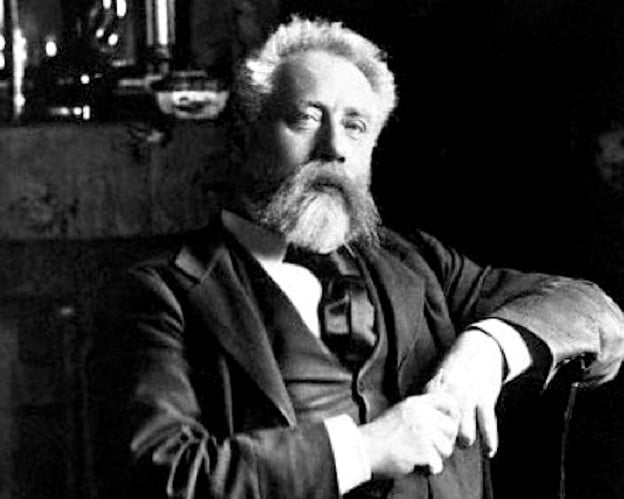
To listen to today’s reflection as a podcast, click here
Invictus is one of history’s most enduring expressions of self-reliance.
It came from the pen of William Ernest Henley (1849-1903), a highly regarded poet and literary critic during Britain’s Victorian Era.
From the age of 12, Henley had battled tuberculosis in the bone of his left leg. At age 20 it had to be amputated just below the knee. He wrote this untitled poem (which a later editor called Invictus, Latin for “unconquered”) as a way of boldly reaffirming command of his life:
Out of the night that covers me, black as the pit from pole to pole,
I thank whatever gods may be for my unconquerable soul.
In the fell clutch of circumstance I have not winced nor cried aloud
Under the bludgeoning of chance, my head is bloody, but unbowed
Beyond this place of wrath and tears looms but the Horror of the shade,
And yet the menace of the years finds, and shall find me, unafraid.
It matters not how strait the gate, how charged with punishments the scroll,
I am the master of my fate; I am the captain of my soul.
Those 93 words have had an astonishing impact on Western culture.
“Bloody, but unbowed” has become a classic turn of phrase for soldiers and sports teams.
Winston Churchill reminded Parliament, during the darkest hours of World War II, “We are still masters of our fate; we are still captains of our souls.”
As told in the 2009 Clint Eastwood film Invictus, Nelson Mandela recited the poem to fellow prisoners during his decades of unjust punishment, and used it to spur on South Africa’s world champion rugby team in 1995.
American soldiers imprisoned during the Vietnam War also encouraged each other with Henley’s words. James Stockdale, who would one day become the running mate of presidential candidate H. Ross Perot, recalls receiving the last stanza written in rat droppings on toilet paper.
Nor should we overlook the current commercials for the men’s fragrance called Invictus, the one where a shirtless hunk eliminates his foes with a wave of his hand, then strides toward a bevy of scantily-clad females.
Left unsaid is whether using this cologne will prompt more men to read poetry.
The hobbled Henley, who was described by a friend as someone with “unimaginable fire and vitality,” became the inspiration for the peg-legged pirate Long John Silver in Robert Louis Stevenson’s novel Treasure Island.
His only child, his beloved daughter Margaret, struggled to speak clearly as a toddler. She called the author J.M. Barrie, one of Henley’s friends, her “fwendy-wendy.” Barrie immortalized her by using the name Wendy in his children’s classic Peter Pan.
What other families can say that they helped inspire two of the most famous literary characters of all time?
Then disaster came. Margaret, whose entire life had been marked by sickness, died at the age of five.
Henley never recovered emotionally. When he himself died at the young age of 53, his ashes were interred in his daughter’s grave.
W.E. Henley, we must say with deep compassion, turned out not to be the captain of his own soul. Nor was he the master of his fate.
Neither are we.
We may declare to ourselves and to others that we are firmly in control of what will happen over the next year, the next week, or the next 24 hours.
In truth, we’re not even in control of whether our hearts will still be beating when we get to the end of this sentence.
This is not to say that no one is watching over our souls.
There really is a Captain.
“Don’t be afraid, I’ve redeemed you.
I’ve called your name. You’re mine.
When you’re in over your head, I’ll be there with you.
When you’re in rough waters, you will not go down.
When you’re between a rock and a hard place,
it won’t be a dead end—
Because I am God, your personal God,
The Holy of Israel, your Savior.
(Isaiah 43:2-4, “The Message”)
Because He has the power and the wisdom to be the true master of our fate, we don’t have to be.
